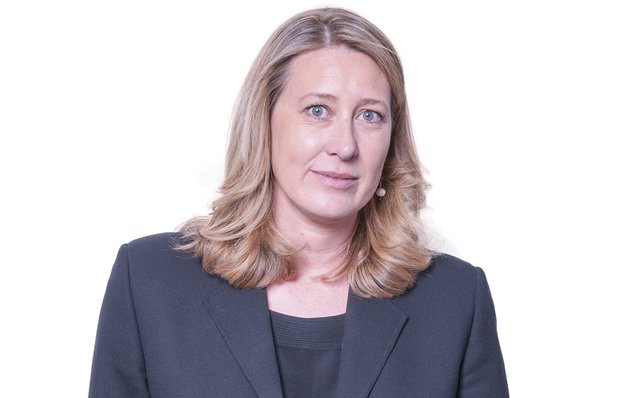News
Joint Controllership Sub-group News
During 2018, the Not-for-Profit International Network CPC set up some study groups with the aim to analyze and compare the Member States laws and Data Protection Authorities’ interpretations on some specific legal arrangements provided by the EU Regulation 679/2016, GDPR.

One of the above study group was based on the interpretation of the joint controllership concept in each Member State and its practical implication (“Joint Controllership Group”).
The Joint Controllership Group was supervised by the Italian CPC member, Chiara Agostini, as group leader, and its results are based on the contributions of the CPC members of the following countries: Belgium, Bulgaria, Cyprus, Italy, Latvia, Netherlands, Norway, Portugal, Slovenia and Spain.
From the comparative analysis carried out by this group, it results that joint controllership was not a frequently used arrangement within the Member States before the GDPR; as a consequence, apart from the famous Belgian case in 2008 concerning SWIFT (the Belgian non-profit association in charge of managing electronic financial transaction processing), there is not an established case-law on this matter that can help professionals in regulating the relation between joint controllers.
From an institutional perspective, only in Norway and in Belgium, the local DPA provided general guidelines on Joint Controllership, under which, these authorities:
- generically indicated when the subjects involved in a data processing shall be considered as individual controllers, joint-controllers or subjects operating under a controller-processor relationship;
- stressed the importance of implementing an arrangement between joint controllers to clearly define their respective obligations, having particular regard to the fulfilments related to data subject rights and on transparency.
The Belgian DPA, moreover, underlined that, notwithstanding the joint controllers agreement, joint controllers remain separately liable for compliance with the GDPR.
From this comparative study, moreover, it results that no local DPA has provided a standard model of the contract between joint controllers. On the basis of their experience, the majority of the CPC members have in any case agreed on the necessity to draft this contract by providing clauses on the following elements: the distribution of liability; the definition of the purposes and of the means of the processing; procedures for data breach notifications / liability in data breach cases; proper application of security measures; appointment of Data Protection Officer (where applicable); the individuation of a main contact point for data subjects and the regulation of possible transfers of personal data to third countries or international organizations.
With the aim to give a practical help on the interpretation of this concept, during its annual conference on 24 November 2018, CPC network decided to merge the Joint Controller Group with the Processor one, supervised by the Bulgarian CPC Member, Mitko Karushkov, in order to draft, during 2019, a memo with the indication of some concrete cases, related to specific market sectors, where subjects involved in a data processing shall be considered as individual controllers, joint-controllers or subjects operating under a controller-processor relationship.
Article provided by: Chiara Agostini (R&P Legal, Italy)
Discover more about the Cloud Privacy Check(CPC) / Data Privacy Compliance(DPC) project
Director CPC project: Dr. Tobias Höllwarth, tobias.hoellwarth@eurocloud.org
News Archiv
- Alle zeigen
- Juli 2025
- Juni 2025
- Mai 2025
- April 2025
- März 2025
- Februar 2025
- Jänner 2025
- Dezember 2024
- November 2024
- Oktober 2024
- September 2024
- August 2024
- Juli 2024
- Juni 2024
- Mai 2024
- April 2024
- März 2024
- Februar 2024
- Jänner 2024
- Dezember 2023
- November 2023
- Oktober 2023
- September 2023
- August 2023
- Juli 2023
- Juni 2023
- Mai 2023
- April 2023
- März 2023
- Februar 2023
- Jänner 2023
- Dezember 2022
- November 2022
- Oktober 2022
- September 2022
- August 2022
- Juli 2022
- Mai 2022
- April 2022
- März 2022
- Februar 2022
- November 2021
- September 2021
- Juli 2021
- Mai 2021
- April 2021
- Dezember 2020
- November 2020
- Oktober 2020
- Juni 2020
- März 2020
- Dezember 2019
- Oktober 2019
- September 2019
- August 2019
- Juli 2019
- Juni 2019
- Mai 2019
- April 2019
- März 2019
- Februar 2019
- Jänner 2019
- Dezember 2018
- November 2018
- Oktober 2018
- September 2018
- August 2018
- Juli 2018
- Juni 2018
- Mai 2018
- April 2018
- März 2018
- Februar 2018
- Dezember 2017
- November 2017
- Oktober 2017
- September 2017
- August 2017
- Juli 2017
- Juni 2017
- Mai 2017
- April 2017
- März 2017
- Februar 2017
- November 2016
- Oktober 2016
- September 2016
- Juli 2016
- Juni 2016
- Mai 2016
- April 2016
- März 2016
- Februar 2016
- Jänner 2016
- Dezember 2015
- November 2015
- Oktober 2015
- September 2015
- August 2015
- Juli 2015
- Juni 2015
- Mai 2015
- April 2015
- März 2015
- Februar 2015
- Jänner 2015
- Dezember 2014
- November 2014
- Oktober 2014
- September 2014
- August 2014
- Juli 2014
- Juni 2014
- Mai 2014
- April 2014
- März 2014
- Februar 2014
- Jänner 2014
- Dezember 2013
- November 2013
- Oktober 2013
- September 2013
- August 2013
- Juli 2013
- Juni 2013
- Mai 2013
- April 2013
- März 2013
- Februar 2013
- Jänner 2013
- Dezember 2012
- November 2012
- Oktober 2012
- September 2012
- August 2012
- Juli 2012
- Juni 2012
- Mai 2012
- April 2012
- März 2012
- Februar 2012
- Jänner 2012
- Dezember 2011
- November 2011
- Oktober 2011
- September 2011
- Juli 2011
- Juni 2011
- Mai 2011
- April 2011
- März 2011
- Februar 2011
- Jänner 2011
- November 2010
- Oktober 2010
- September 2010
- Juli 2010

